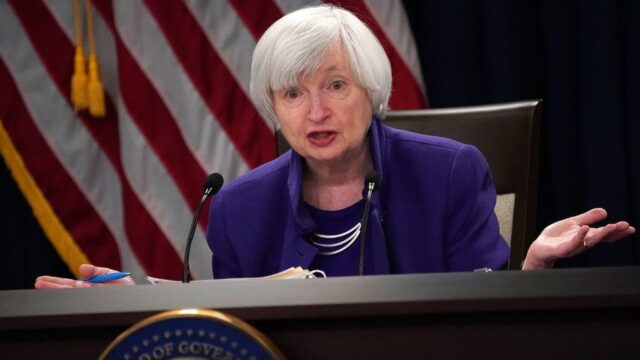Tensions are high in the United States as President Joe Biden and Speaker Kevin McCarthy try to strike a budget deal before the US Treasury runs into default. However, the agreement is still far and the default is expected to reach during the June first week.
If not sorted in the coming week, the US may witness a severe economic crisis which could also impact the Indian economy as it is one of the world’s leading economies. The Indian rupee is also expected to decline as a result.
How The Indian Economy Will Be Impacted?
Economists anticipate that the ceiling will eventually be raised, but the volatility in stock markets and currencies will have a significant impact. Even US Treasury Secretary Janet Yellen has warned that delaying raising the limit until the eleventh hour may create more harm than good.

As markets become more volatile, investors place their money in less volatile assets such as bonds, gold, and currencies. As a result, the dollar index has risen significantly in recent months, putting pressure on the rupee.
If the United States defaults, it will lose its financial dominance and status as the centre of global trade. Rating agencies would severely lower its creditworthiness, and the value of US sovereign bonds in which the Indian government has invested will be slashed to absurdly low levels.
Rupee To Weaken
The Indian rupee is projected to fall as the ongoing standoff over the US debt ceiling dampens risk appetite and boosts demand for the safe-haven currency.
Also Read: Indian Economy At A Risk Of Being ‘Dollarized’ By Cryptocurrencies
Asian currencies and shares fell as concerns about the US debt ceiling caused the S&P 500 Index to fall the most in three weeks. The dollar index was trading near 103.50.
A US default could stymie development because there will be less liquidity in the market and debt bonds will give little to no monetary gain.
What Is The US Debt Ceiling?
It is the most money Congress will let the federal government borrow to pay its bills. This is because the government typically spends more money than it earns in taxes, necessitating the use of debt to cover its expenses.
If the debt ceiling is not lifted or suspended, the United States may default for the first time. Treasury Secretary Janet Yellen has warned that if Congress does not act, the United States will run out of money to meet its debts.
Yellen has frequently warned that failure by Congress to extend the federal debt ceiling of $31.4 trillion would result in a “constitutional crisis” and a “economic and financial catastrophe” for the US and global economies.
The Treasury Department has already begun to take exceptional measures to keep the government funded, although Yellen stated that financing will run out in early June.
Image Credits: Google Images
Sources: WION, CNBC, Reuters
Find the blogger: Palak Dogra
This post is tagged under: indian economy, india’s economy, united states, us debt ceiling, joe biden versus mccarthy, us showdown, impact of us debt ceiling on india, nirmala sitharaman, pm modi, narendra modi
Disclaimer: We do not hold any right, copyright over any of the images used, these have been taken from Google. In case of credits or removal, the owner may kindly mail us.
Other Recommendations:
ResearchED: How Extreme Heat Will Affect Different Sectors Of Indian Economy





































